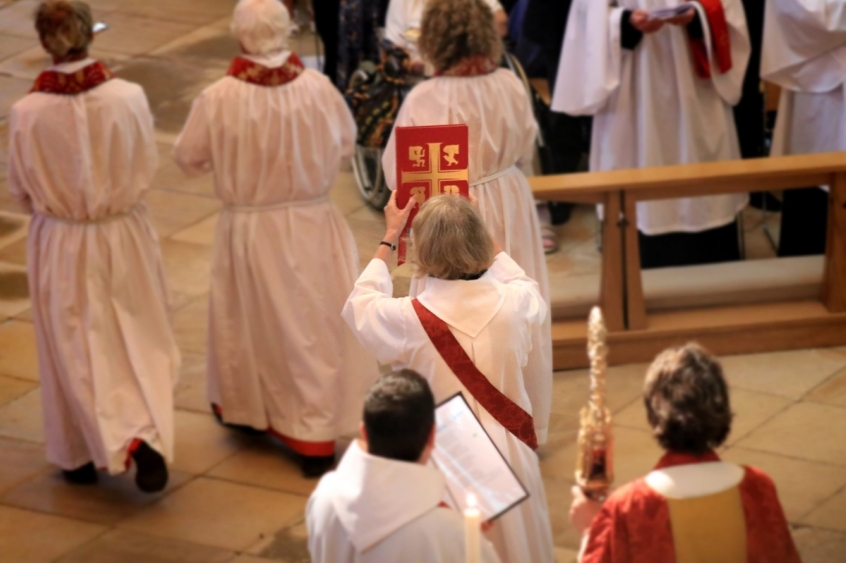
The new Archbishop of York has boldly declared that he wants to see 'a Church of glorious and profligate diversity.'
It's an interesting choice of words . And it thus seems appropriate to ask: theologically, what might a healthy Christian diversity look – and also not look – like?
Certainly, racial diversity would be a part of it. Indeed, that is part of the Scriptural vision of 'the age to come'. The New Testament speaks of 'a great multitude that no one could number, from every nation, from all tribes and peoples and languages, standing before the throne' of God.
Class diversity would also be integral. Read the Letter to Philemon and realise how revolutionary Paul's exhortation to Philemon to welcome back his previously 'useless' and dishonest slave Onesimus 'as a dear brother' would have been – and remains. Read the Letter of James and be struck afresh by how Christians are told, 'as believers in our glorious Lord Jesus Christ, don't show favouritism.' The example used involves a rich man and a poor man: in God's Kingdom, both equally have their place.
Jesus' first followers were a pretty diverse bunch, as any reading of the gospels quickly shows. In terms of occupation, background and temperament they seem to have been widely differing. It's no wonder they fell out from time to time.
Perhaps the New Testament vision of Biblical diversity is best summed up in Paul's famous words that all who place their trust in Christ are equally heirs of God's promises, whether 'Jew... Greek... slave... free... male... or female.' Indeed, all are 'one in Christ Jesus'.
It is possible, therefore, to have some sympathy with Archbishop Cottrell's assertion that the Church of England is 'still overly dominated' by 'white, older men from privileged backgrounds'. It's a charge that many might level at some forms of British evangelicalism too. In both cases, there is much progress to be made.
However, all that said, there will be a suspicion among some that what Stephen Cottrell also means when he talks about 'diversity' includes all sorts of different views on issues of sexuality and gender.
Now of course there is some legitimate diversity set out in Scripture when it comes to things we believe. Not everyone has to take exactly the same view on everything all the time. And that's a great relief! For example, Paul says that 'one person's faith allows them to eat everything, but another... eats only vegetables...' Again, 'one person considers one day more sacred than another' while another 'considers every day alike'. He goes on to assert: 'Each one should be fully convinced in their own mind.' Nor should one judge the other on such issues.
But there's never any indication in the New Testament that there is a legitimate diversity to be had in some other matters – including matters of sexuality and gender. Indeed, despite what some revisionist scholars say, there has been a remarkably consistent and uniform witness down two millennia on these issues among Christians, whether Roman Catholic, Protestant or Eastern Orthodox.
And given that this wide and traditional understanding has also seen such issues regarded as 'salvation issues' – in other words matters that can affect our eternal destiny – it would seem strange to regard them as matters of secondary importance and thus legitimate disagreement. It is perhaps unfortunate, then, that Archbishop Cottrell used the word 'profligate'. It is, of course, a term with two meanings: one relating to extravagance (which is presumably how he meant it), but the other referring to being 'licentious and dissolute'.
One final thought: if Archbishop Cottrell truly is keen on diversity, then he might do his utmost to ensure the appointment of Church of England bishops from the 'complementarian evangelical' stable – a 'quiet and unnoticed scandal' as Christian Today put it in 2018, and which continues today. Having been promised 'mutual flourishing' after the inclusion of women bishops, what they have ended up with is shameless prejudice.
That's the thing about truly Biblical diversity. It can never just mean including those who are the same as us. And that cuts lots of uncomfortable ways – for all of us. Ouch.
David Baker is an Anglican minister and journalist @Baker_David_A
Views and opinions published in Christian Today are those of the authors and do not necessarily reflect the views of the website.













